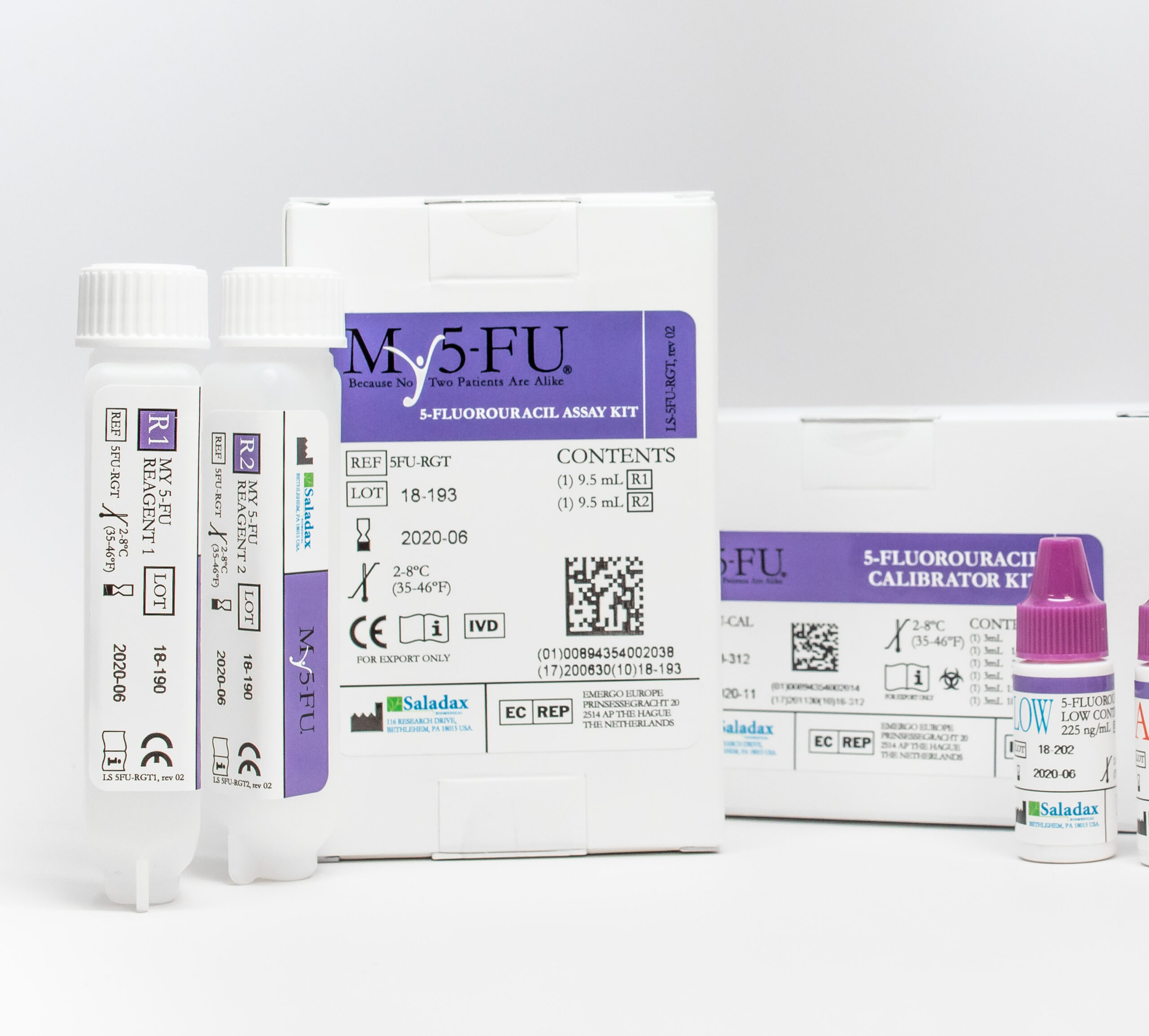Advantages of a Practical Approach to Personalized Dosing of 5-FU Demonstrated
Saladax Biomedical, Inc. recently presented results from the Central European Society for Anticancer Research (CESAR) study at the American Society of Clinical Oncology (ASCO) Annual Meeting 2015 taking place in Chicago, Illinois. The presentation is available on the Saladax website at www.saladax.com.
Using the most common infusional 5-FU regimens to treat colorectal cancer (CRC), the CESAR study (clinical trial identifier: EUDRACT 2011-003553026) was conducted in seven centers in Germany. The study demonstrated that regardless of the regimen, standard dosing 5-FU using body surface area resulted in highly variable and unpredictable exposure, with the majority (65%) of CRC patients being under-dosed. Pharmacokinetically (PK) guided adjustment of 5-FU doses controlled individual patient exposure: after just two cycles the PK-guided dosing resulted in higher doses and significantly more patients achieving the optimal 5-FU exposure range. These results have been reproduced in several other studies done in Europe, the US, and China. When compared to historical data, personalization of dosing led to an overall lower incidence of toxicity, despite the higher doses being administered.
These findings verify the results from multiple studies demonstrating the importance of optimizing 5-FU therapy on a patient-by-patient basis to lower toxicity and improve efficacy. PK-guided dose adjustment makes it possible for more patients to achieve an effective 5-FU dose with less toxicity.




